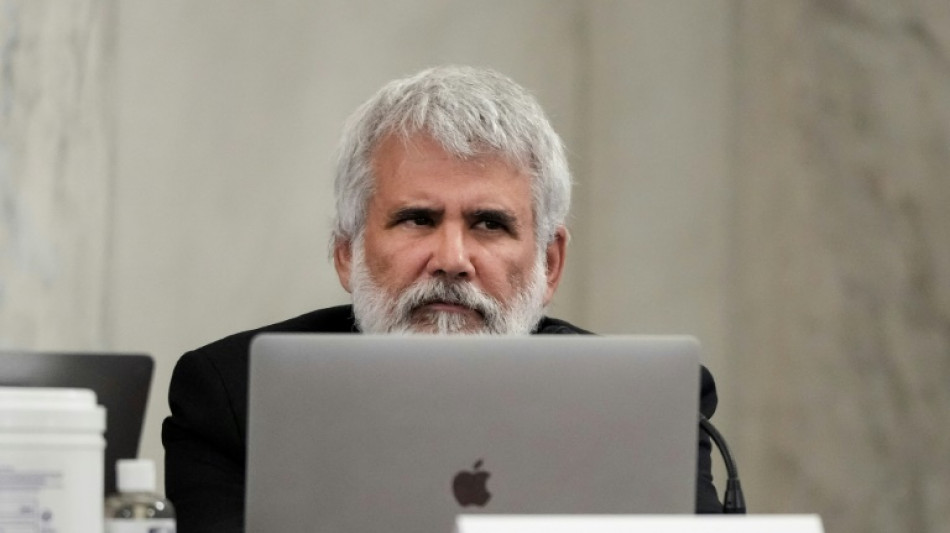

RFK Jr vaccine panel targets childhood vaccinations in first meeting
A medical panel appointed by US Health Secretary Robert F. Kennedy Jr. held its first meeting Wednesday, pledging to revisit the childhood vaccine schedule and promoting themes long embraced by anti-vaccine activists.
The Advisory Committee on Immunization Practices (ACIP), an independent group that reviews scientific evidence to determine who should receive vaccines and when, rarely draws headlines.
But that changed after Kennedy -- who spent decades spreading vaccine misinformation before becoming President Donald Trump's top health official -- abruptly fired all 17 sitting members earlier this month, accusing them of industry conflicts of interest.
He replaced them with eight new appointees, including scientist Robert Malone, known for promoting false claims during the Covid-19 pandemic.
The panel's new chair, Martin Kulldorff, co-authored the Great Barrington Declaration, which called for ending lockdowns in October 2020, even though it was known Covid vaccines were nearing approval.
Kulldorff opened the meeting by announcing a new working group to re-examine the childhood vaccine schedule. He raised questions about the potential cumulative effects of vaccine interactions and the wisdom of administering the Hepatitis B shot "on the day of birth."
Experts met the announcement with skepticism.
"The rationale for Hepatitis B vaccination prior to hospital discharge (not 'day of birth') for neonates is well documented and established -- but it's another pet cause of the anti-vaccine movement," Amesh Adalja, an infectious disease expert at Johns Hopkins University, told AFP.
The panel's first major test comes Thursday, when it votes on whether to recommend a newly approved antibody shot against RSV, or respiratory syncytial virus, for infants whose mothers did not receive an RSV vaccine during pregnancy.
- Fabricated citation -
The meeting agenda also signaled plans to revisit long-settled debates around thimerosal, a mercury-based preservative, and to highlight rare side effects linked to measles shots -- with no planned discussion of the overwhelming public health benefits of immunization.
Lyn Redwood, a nurse and former leader of Children's Health Defense -- the anti-vaccine group once chaired by Kennedy -- is scheduled to present Thursday on thimerosal.
Scientists reviewing her slides, posted ahead of the meeting, discovered she cited a 2008 paper by RF Berman titled "Low-level neonatal thimerosal exposure: Long-term consequences in the brain."
No such study exists. While Berman did publish a paper that year, it appeared in a different journal and found no link between thimerosal and autism.
The presentation was quietly revised without explanation. The incident echoed possible AI chatbot hallucinations blamed for similar sourcing errors in Kennedy's recent flagship Make America Healthy Again report.
The Centers for Disease Control and Prevention (CDC), which is overseeing the meeting, had been set to deliver a presentation defending thimerosal, but that document was deleted from the website at the last minute.
The panel will vote on thimerosal-containing flu vaccines on Thursday afternoon.
- Sweeping implications -
During a discussion on Covid-19 vaccines, Malone suggested that mRNA shots may have triggered novel, poorly understood effects on the immune system.
CDC scientist Sarah Meyer pushed back, saying the nation's vaccine safety systems would have flagged such issues if they had occurred.
The panel will also revive a debate on the combined measles, mumps, rubella, and varicella (MMRV) shot, which is offered as an alternative to separate MMR and varicella injections.
While the combined version spares children an extra jab, it slightly increases the risk of febrile seizures -- a rare and typically harmless side effect.
Current guidelines already recommend splitting the doses for a child's first shot at 12–47 months, leaving experts puzzled as to why the issue is being re-litigated.
As panelists scrutinize rare side effects, there is no plan to discuss the measles vaccine's enormous public health benefits -- including preventing millions of hospitalizations.
The United States, which declared measles eliminated in 2000, is experiencing its worst outbreak in decades -- with over 1,200 cases and three confirmed deaths this year.
ACIP's recommendations could carry sweeping implications, shaping school entry requirements and insurance coverage across the country.
P.Castillo--ECdLR






